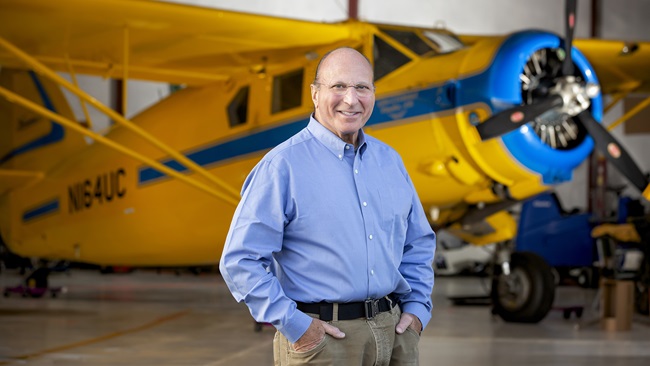Survey researches when aviators seek medical help
Pilots can participate through March 1
Are pilots honest with their medical care professional or do they think it’s in their best interest to dance around potentially serious health issues? That’s what University of North Dakota aviation graduate, U.S. Air Force member, and medical student Billy Hoffman aims to find out with a short online survey available through March 1.
When Hoffman was an undergraduate in Grand Forks, North Dakota, he heard about a disturbing study that seemed to indicate military pilots were reluctant to disclose certain ailments to their airman medical examiners. After Hoffman switched careers to the medical field, he wondered if civilian pilots acted the same way.
After he established himself in medical school, Hoffman, along with his clinical advisor Aykut Üren of Georgetown University Medical Center, and fellow medical student Nikhil Chervu, determined that a survey geared toward pilots’ health attitudes could illuminate a trend for further research. The trio aimed to discover if “delayed treatment or non-treatment for pilots with potentially serious ailments” was a factor in attitudes toward visiting a health care professional, said Hoffman.
“It’s logical that pilots would be afraid for their job security or their hobby,” he theorized. “It’s not in their best interest to disclose certain ailments because they know it’ll be disqualifying for flight privileges.”
The researchers chose a scenario that included chest pains. The questions ask participants at what stage would they seek medical help. Hoffman explained that certain heart ailments could result in significant scar tissue if treatment were delayed and could further affect one’s health.
“It’s common knowledge that it [chest pain] is associated with heart attacks,” wrote Üren. Chest pain, coronary artery disease, and myocardial infarctions are "potentially medically disqualifying conditions,” according to the FAA, he added. He also explained that the duration of time between "symptom onset and medical intervention" could result in “poorer outcomes.”
The researchers considered several additional factors while analyzing results: Males generally wait longer to see a physician than females; males in aviation careers currently outnumber females by a large margin; and “a senior pilot might be much more honest with their doctor than a junior pilot” seeking to build flight experience, Hoffman added.
“We’ve had almost 1,000 people take our survey, which is remarkable,” said Hoffman, but he was also “unsettled” by the preliminary results. The team plans to publish their findings in a medical journal when the survey is complete.
“If they [pilots] are going to self-incriminate themselves, then maybe there’s a better way to assess their medical status,” noted Hoffman. “It’s in everybody’s interests to have healthy pilots.”




